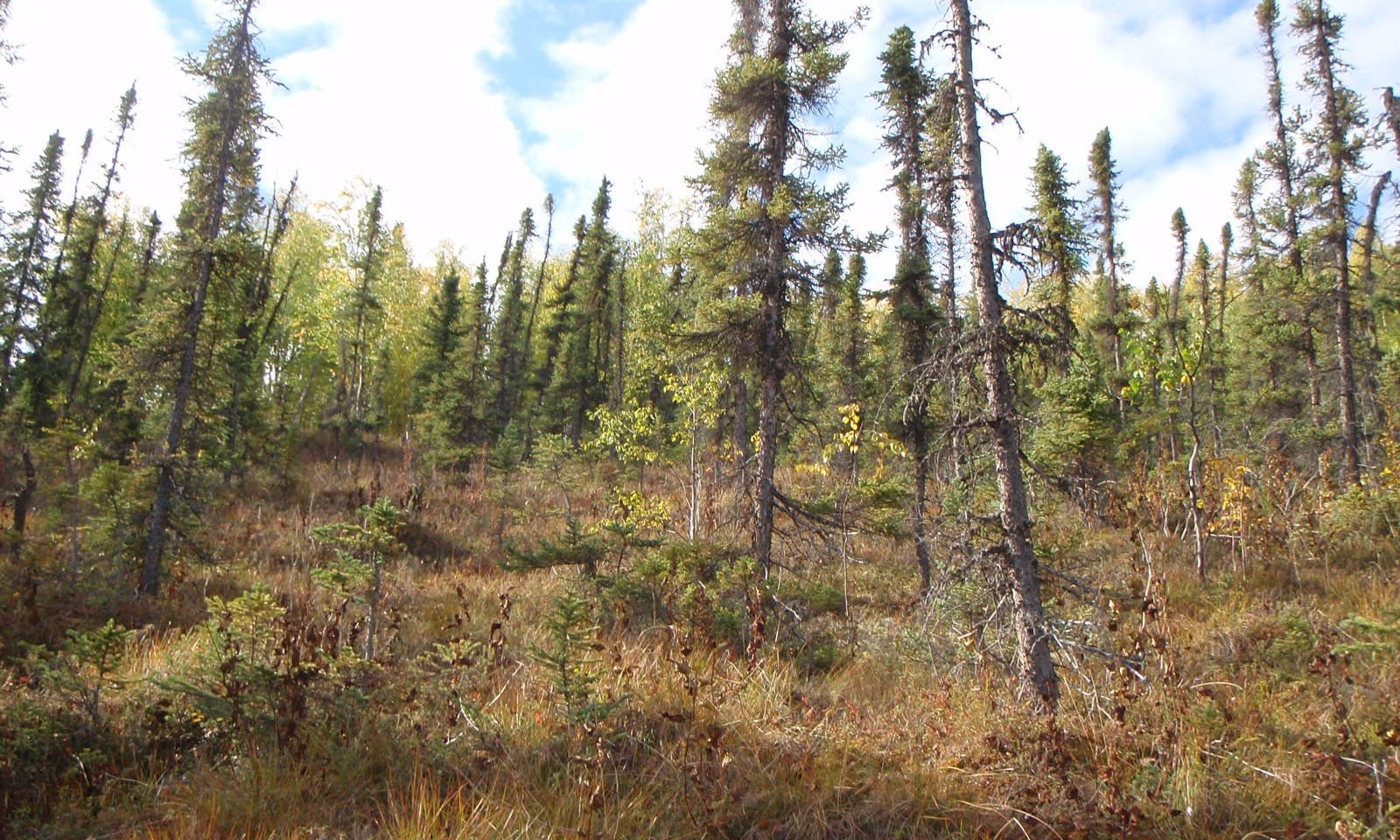
Boreal Woodland Gravelly Frozen Slopes
Circle-spoke model
Scenario model
Current ecosystem state
Select a state
Management practices/drivers
Select a transition or restoration pathway
-
No transition or restoration pathway between the selected states has been described
Target ecosystem state
Select a state
Description
The reference plant community is dwarf tree scrub woodland (Viereck et al. 1992) with the dominant tree being black spruce. There are three plant communities within the reference state related to fire.
Solifluction is a process associated with this state but does not happen to a degree resulting in a mosaic of vegetation. Solifluction is the slow, viscous downslope flow of water-saturated soil (Shoeneberger and Wysocki 2017). This process is most active for this site during spring thaw where the upper band of soil material slips on a seasonally frozen layer. Solifluction is a common process associated with several ecological sites in this area and this site can at times have small solifluction lobes. Since these small solifluction lobes are uncommon and do not result in a vegetation mosaic, no alternative state was developed for this site (see R231XY113AK for a site that does have this alternate state).
Submodel
Model keys
Briefcase
Add ecological sites and Major Land Resource Areas to your briefcase by clicking on the briefcase (![]() ) icon wherever it occurs. Drag and drop items to reorder. Cookies are used to store briefcase items between browsing sessions. Because of this, the number of items that can be added to your briefcase is limited, and briefcase items added on one device and browser cannot be accessed from another device or browser. Users who do not wish to place cookies on their devices should not use the briefcase tool. Briefcase cookies serve no other purpose than described here and are deleted whenever browsing history is cleared.
) icon wherever it occurs. Drag and drop items to reorder. Cookies are used to store briefcase items between browsing sessions. Because of this, the number of items that can be added to your briefcase is limited, and briefcase items added on one device and browser cannot be accessed from another device or browser. Users who do not wish to place cookies on their devices should not use the briefcase tool. Briefcase cookies serve no other purpose than described here and are deleted whenever browsing history is cleared.
Ecological sites
Major Land Resource Areas
The Ecosystem Dynamics Interpretive Tool is an information system framework developed by the USDA-ARS Jornada Experimental Range, USDA Natural Resources Conservation Service, and New Mexico State University.
